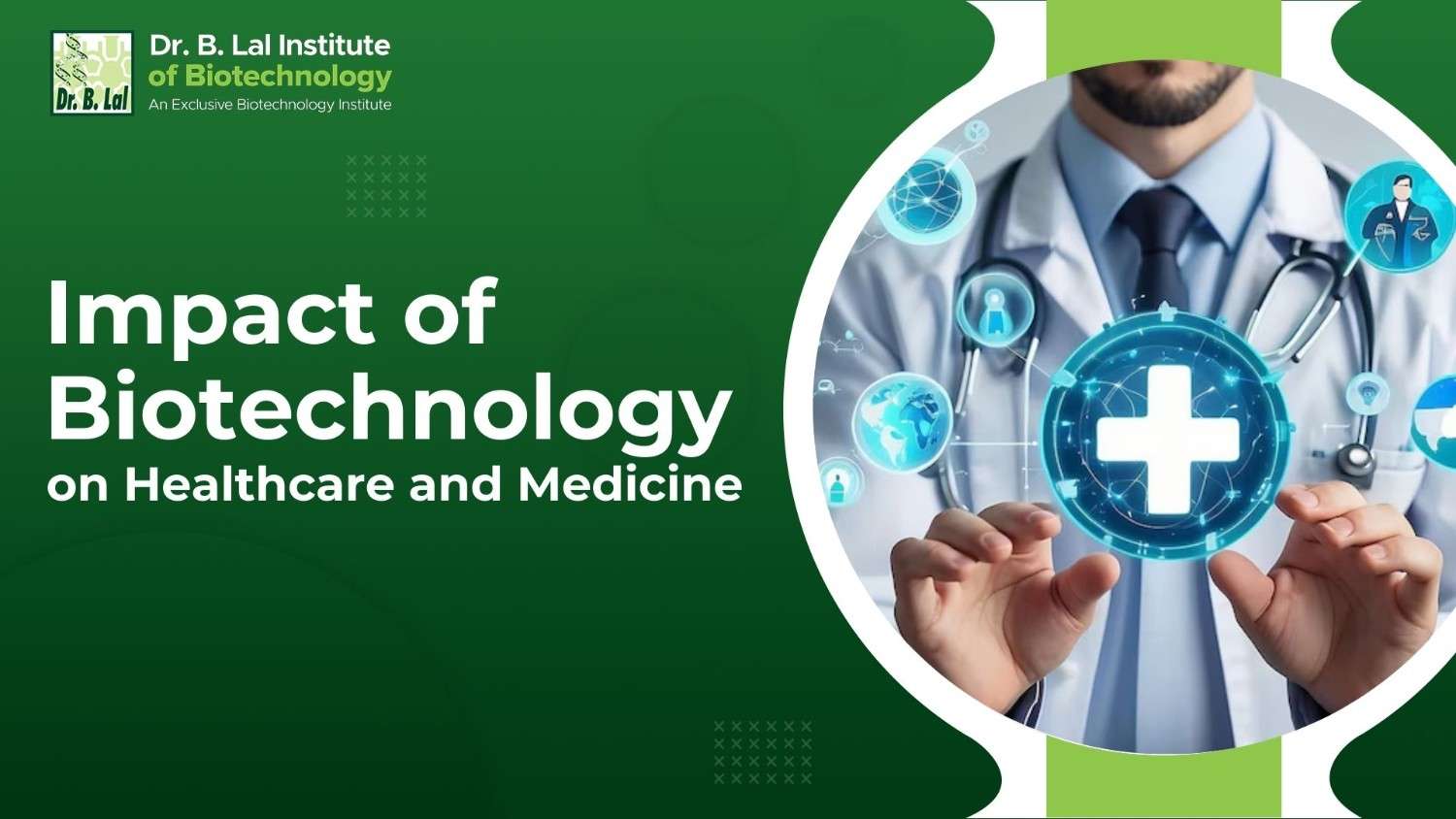
Impact of Biotechnology on Healthcare and Medicine
Biotechnology has revolutionized healthcare and medicine, bringing forth new innovations and opportunities. It uses biological systems, organisms, or their parts to develop products and technologies. This field has led to major breakthroughs in genetic engineering, drug development, personalized medicine, and diagnostics, transforming disease treatments and enhancing patient health outcomes for a better future.
Genetic Engineering: The Foundation of Modern Biotechnology
Genetic engineering is crucial in biotechnology's role in healthcare. It involves altering organisms' genetic material to create genetically modified organisms (GMOs) and develop medical treatments. Techniques like CRISPR-Cas9 are revolutionary in gene editing, allowing precise changes to DNA. This technology shows potential in treating genetic disorders such as cystic fibrosis, sickle cell anemia, and muscular dystrophy by fixing genetic mutations directly.
Gene therapy, a breakthrough in genetic engineering, involves putting healthy genes into patients' cells to replace faulty ones. It's been successful in treating inherited diseases and cancers. For instance, CAR-T cell therapy alters a patient's T-cells to fight cancer cells and has shown excellent outcomes in leukemia and lymphoma treatment.
Drug Development: Accelerating the Path to New Treatments
Biotechnology speeds up drug development, cutting down time and costs. Unlike traditional methods relying on trial and error, biotechnological approaches use high-throughput screening, bioinformatics, and computational modeling to find potential drugs faster and cheaper.
Monoclonal antibodies made through biotechnology are now essential for treating diseases like cancer, autoimmune disorders, and infectious diseases. They're tailored to target specific disease-causing molecules, providing more precise and effective treatment than traditional drugs.
Biotechnology has transformed biopharmaceuticals like insulin for diabetes, now made by genetically engineered bacteria. It's also accelerated vaccine development, seen in the quick creation of mRNA COVID-19 vaccines.
Personalized Medicine: Tailoring Treatments to Individuals
Biotechnology in healthcare has been revolutionized by personalized medicine. It customizes treatments based on patients' unique genetic profiles, lifestyles, and environments. This approach uses genetic insights to create more precise therapies, enhancing effectiveness while minimizing side effects.
Pharmacogenomics is a crucial part of personalized medicine, focusing on how genes influence how individuals respond to drugs. This helps doctors choose medications and doses that are likely to work best for each patient. For instance, in cancer treatment, drugs are now selected based on the genetic mutations found in a patient's tumor, improving treatment outcomes.
Biotechnology helps create diagnostic tools that find diseases early, sometimes before symptoms show up. These tools use biomarkers, molecules that show if a disease is present, to give precise and quick diagnoses. Catching diseases early, like cancer, can greatly improve how well patients do.
Diagnostics: Enhancing Disease Detection and Monitoring
Advancements in biotechnology have transformed diagnostics, making disease detection faster, more accurate, and less invasive. Techniques like polymerase chain reaction (PCR) and next-generation sequencing (NGS) enable quick and precise identification of pathogens and genetic mutations.
Molecular diagnostics are crucial for identifying infectious diseases, genetic disorders, and cancers by analyzing DNA, RNA, or proteins. Liquid biopsies, for example, detect cancer-related mutations in blood samples, providing a non-invasive option to tissue biopsies. This technology allows for ongoing monitoring of cancer development and how treatments are working.
Point-of-care diagnostics, powered by biotechnology, offer fast and precise results directly at the patient's bedside or in remote areas. These portable devices are crucial in places with limited resources, ensuring prompt diagnosis and treatment for diseases such as malaria, HIV, and tuberculosis.
Revolutionizing Disease Treatment and Patient Outcomes
Biotechnology in healthcare has transformed how we treat diseases and improve patient results. Targeted therapies, crafted from a thorough grasp of disease mechanisms, provide more accurate and efficient treatment choices. These therapies concentrate on disease pathways, reducing harm to healthy cells and lessening side effects.
Regenerative medicine, powered by biotechnology, focuses on repairing damaged tissues and organs using methods like stem cell therapy and tissue engineering. Stem cells, capable of transforming into different cell types, show promise in treating conditions such as spinal cord injuries, heart disease, and diabetes. Tissue engineering creates bioengineered tissues and organs, providing new possibilities for patients in need of organ transplants.
Conclusion: The Promising Future of Biotechnology in Healthcare
Biotechnology is reshaping healthcare and medicine profoundly. It's changing how we treat diseases through genetic engineering, drug development, personalized medicine, and diagnostics. With ongoing research and innovation, biotechnology holds immense promise in tackling today's critical health challenges.
Dr. B Lal Institute of Biotechnology leads in biotechnological research and education, fostering innovation with state-of-the-art facilities. It prepares future scientists and healthcare leaders to drive advancements in biotechnology, shaping the future of healthcare and medicine through excellence and dedication.
To Know More - Industrial Biotech Training at BIBT
- The impact of biotechnology on healthcare and medicine, from advanced diagnostics to personalized treatments, and learn about the pivotal role of BIBT.
Made it this far? That means you're curious—and we love that! Ready to test your passion for biotechnology? Click below to find out 👇🏻
Biotechnology Aptitude Test




Your email address will not be published. Required fields are marked *